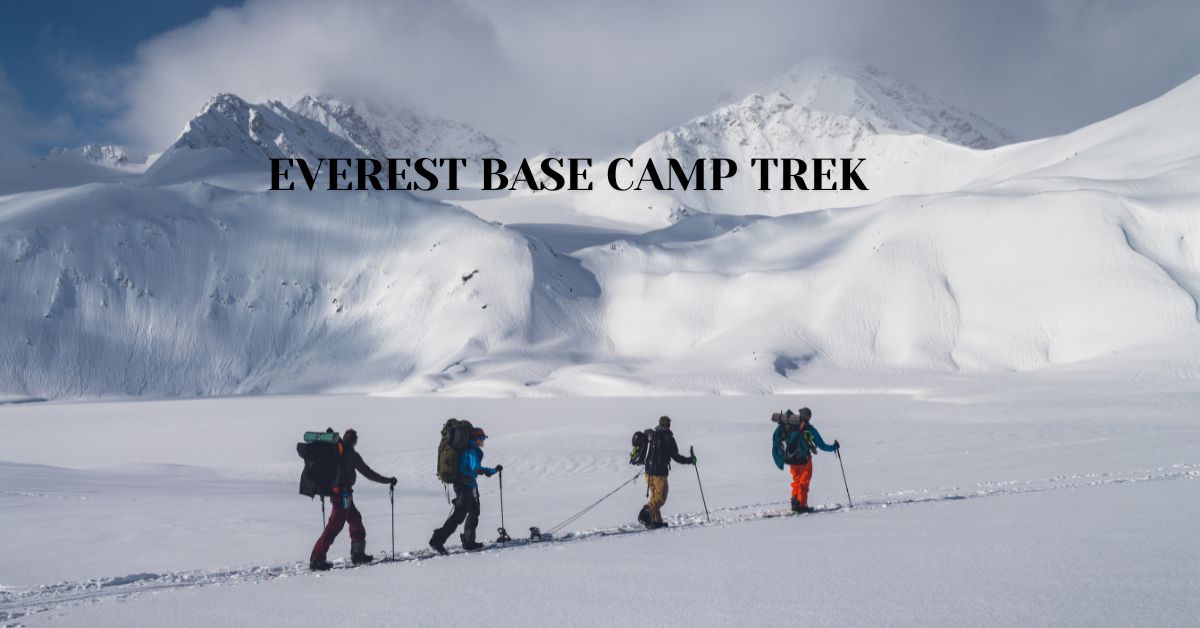Imagine standing in the shadow of Mount Everest, the tallest peak on Earth, with the crisp Himalayan air filling your lungs. The Everest Base Camp Trek isn’t just a hike; it’s a life-changing adventure that combines natural beauty, cultural immersion, and physical challenge. Whether you’re an experienced trekker or someone seeking a transformative journey, this trek offers unparalleled experiences.
History and Significance of Everest Base Camp
The Everest Base Camp (EBC) has been a symbol of adventure since Sir Edmund Hillary and Tenzing Norgay first conquered Everest in 1953. Every year, thousands of trekkers follow in their footsteps, drawn by the allure of the world’s highest peak. EBC isn’t just about Everest—it’s about embracing the spirit of exploration and pushing personal boundaries.
Preparation for the Everest Base Camp Trek
Physical Fitness Requirements
The trek demands stamina, strength, and mental resilience. Training should include cardiovascular exercises, hiking practice, and strength-building routines to prepare your body for the altitude and rugged terrain.
You May Also Like: Adventuretwo.net get in Touch: Exploring Unique Travel Experience
Recommended Gear and Packing List
Clothing Essentials: Pack in layers, including thermal wear, waterproof jackets, and trekking boots.
Equipment: A sturdy backpack, trekking poles, and a sleeping bag rated for sub-zero temperatures are non-negotiable.
Importance of Acclimatization
Acclimatization is key to avoiding altitude sickness. Follow the golden rule: ascend slowly and allow your body time to adjust.
Best Time to Visit Everest Base Camp
Peak Trekking Seasons
Spring (March-May) and Autumn (September-November) are ideal due to stable weather and clear skies.
Seasonal Challenges and Advantages
Winter treks offer solitude but come with freezing temperatures. Summer brings lush greenery but higher chances of rain.
Detailed Trekking Route Overview
Kathmandu to Lukla: The Gateway
The adventure begins with a thrilling flight to Lukla, known for its short and scenic runway.
Highlights of the Trail
Namche Bazaar, the vibrant Sherpa town, offers acclimatization stops and a taste of local culture. The iconic Tengboche Monastery provides spiritual solace amid breathtaking vistas.
Arrival at Everest Base Camp
Reaching EBC is an emotional moment for many, marked by awe-inspiring views of the Khumbu Icefall and Everest itself.
Cultural Experience Along the Way
Sherpa Hospitality
Sherpas, the legendary mountain guides, welcome trekkers with unmatched warmth. Their stories and traditions enrich the journey.
Buddhist Monasteries
Monasteries like Tengboche provide a spiritual dimension, with prayer flags and chanting monks adding to the mystical ambiance.
Challenges of the Everest Base Camp Trek
Altitude Sickness
Symptoms include headaches, nausea, and fatigue. Staying hydrated, ascending gradually, and listening to your body are crucial.
Physical and Mental Endurance
The trek tests your limits, but the rewards—breathtaking landscapes and a sense of accomplishment—are worth every step.
Conclusion
The Everest Base Camp Trek is more than a journey; it’s a testament to human resilience and the wonders of nature. With proper preparation, respect for the environment, and an adventurous spirit, this trek will leave you with memories to last a lifetime.
FAQs
How difficult is the Everest Base Camp trek?
The trek is moderately challenging and requires physical fitness and mental determination.
What is the average duration of the trek?
The round trip typically takes 12-14 days, depending on acclimatization days.
Can beginners attempt the trek?
Yes, with adequate preparation and a gradual pace, beginners can successfully complete the trek.
Are there any age restrictions for the trek?
There are no strict age limits, but trekkers should be in good health and consult a doctor beforehand.
What is the success rate for reaching Everest Base Camp?
Most trekkers reach EBC, with success largely dependent on proper acclimatization and preparation.





















